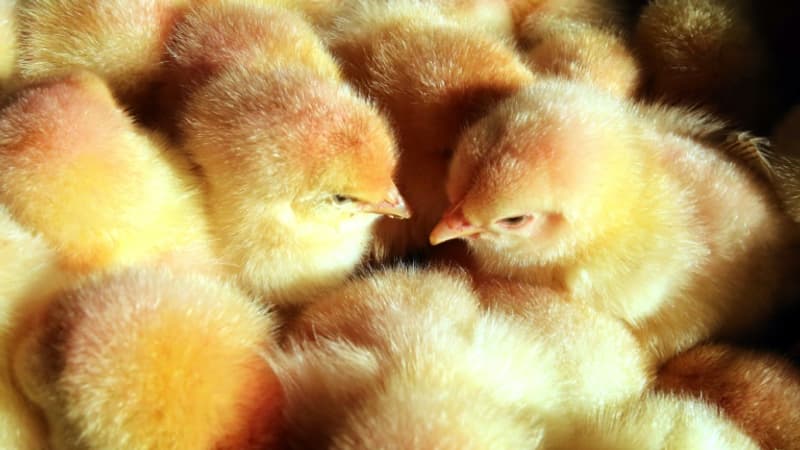The crushing and gassing of male chicks will soon end in France. The disposal of male chicks, useless for the egg and laying hen sector, will be officially prohibited on January 1, 2023. The sector has been preparing for this for a long time, at the cost of massive investments: almost all French incubators are equipped with ovosexing machines, a technology that determines the sex of the embryos in the egg during the first days and therefore eliminates the males before hatching. In other rare cases, male birds will be farmed for their meat.
Much of this bill will be paid… by mass distribution. The end of the elimination of male chicks causes an additional cost of 50 million euros per year: to finance it, a contribution system was validated last month through an interprofessional agreement. For each egg sold, an amount of just over half a cent of a euro (0.0059 euros) will be removed from the large distribution by the packaging centers, which will return the amount to the interprofessional (CNPO). Finally, the CNPO will pay the hatcheries an indemnity of 1.11 euros for each ovosexual or male egg raised.
Eggs are not necessarily more expensive
If mass distribution will not necessarily increase the price of eggs, it will probably pass on this contribution to other products. More specifically: the final customer will not pay more for his eggs, but that additional half cent will continue to end up on his receipt, drowning in the margins of the supermarket. Taking into account that the end of the elimination of male chicks is mainly due to consumer demand, and that they are willing to pay more for it, the sector considers that it is legitimate for them to bear the extra cost.
At the moment, this contribution of 0.0059 euros per egg covers all the costs of the incubator, but the FranceAgriMer organization will monitor it in the coming years to fine-tune the amount; economies of scale could allow, for example, to reduce that. Above all, the interprofessional would like to extend the payment of this contribution to the food industry and restaurants, which were not included in the agreement because they are not members of the CNPO. In addition, the State contributed 10.5 million euros to the installation of ovosexing machines.
Towards a European ban?
Looking at neighboring countries, the French sector reiterated its call for European harmonization to avoid any distortion of competition. Germany, which has also banned the grinding of male chicks, “closed a third of its hatcheries” and “we don’t want the same in France,” argued Yves-Marie Beaudet. “We need to build European robustness,” Agriculture Minister Marc Fesneau said, confirming that the government was advocating a Europe-wide ban.
Source: BFM TV


